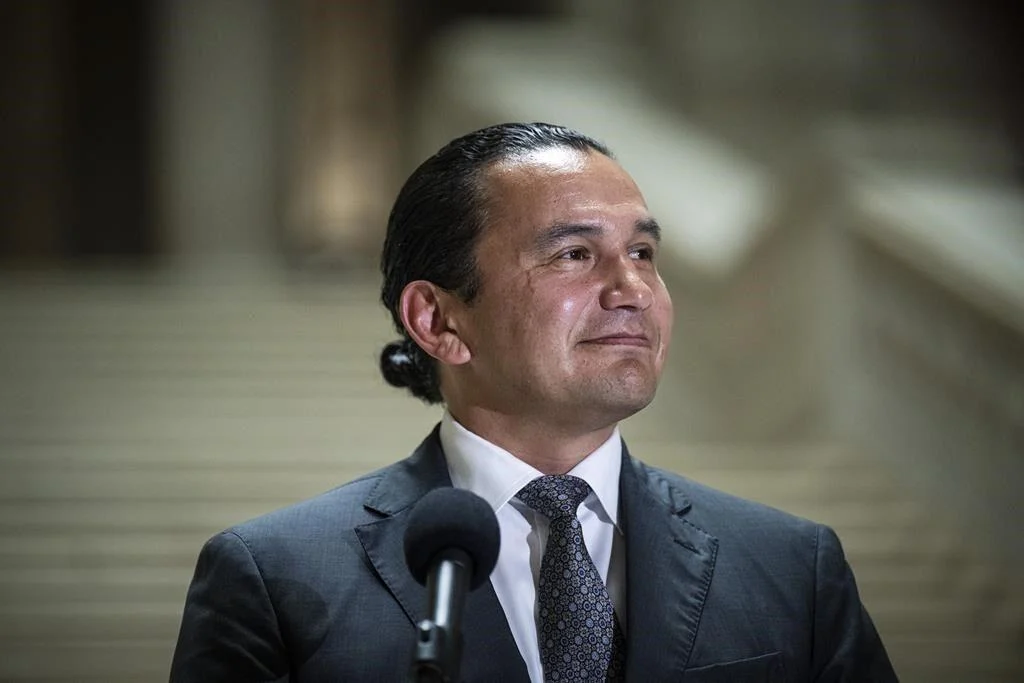
Wab Kinew holds a press conference in Winnipeg on Wednesday, Oct. 4, 2023. THE CANADIAN PRESS/Aaron Vincent Elkaim.
Premier Wab Kinew announced on Wednesday that minimum-wage workers in Manitoba will see a raise of 50 cents per hour starting October 1, bringing the hourly rate to $15.80. This increment adheres to a formula outlined in provincial law, which correlates with the previous calendar year's inflation rate. However, critics argue that the NDP government should have implemented more substantial increases to ensure a living wage for workers.
Kevin Rebeck, President of the Manitoba Federation of Labour, expressed disappointment, emphasizing the necessity for a minimum wage that enables individuals to sustain themselves. Despite calls for more significant raises, Premier Kinew did not commit to exceeding the basic formula's requirements at present, hinting at potential future discussions regarding wage adjustments.
Kinew highlighted other affordability measures introduced by the NDP, such as the temporary suspension of the provincial fuel tax initiated in January, as strategies aimed at supporting individuals. According to provincial legislation, if inflation surpasses five percent in the current calendar year, the minimum wage can be further raised. This provision was established by the former Progressive Conservative government, which, before losing the October 3 election, had increased the minimum wage twice in the previous year by a total of $1.80 per hour.
The Opposition Progressive Conservatives criticized the NDP for allegedly reneging on previous commitments to establish a living wage, citing estimates from the Canadian Centre for Policy Alternatives suggesting that a living wage in Winnipeg should be $19.21 per hour.
Josh Brandon, a community animator with the Social Planning Council of Winnipeg, expressed disappointment in the NDP's trajectory, given their pre-election policies. He noted that essential living expenses like food, housing, and transportation are rising faster than the overall inflation rate, underlining the challenges faced by low-income families.















